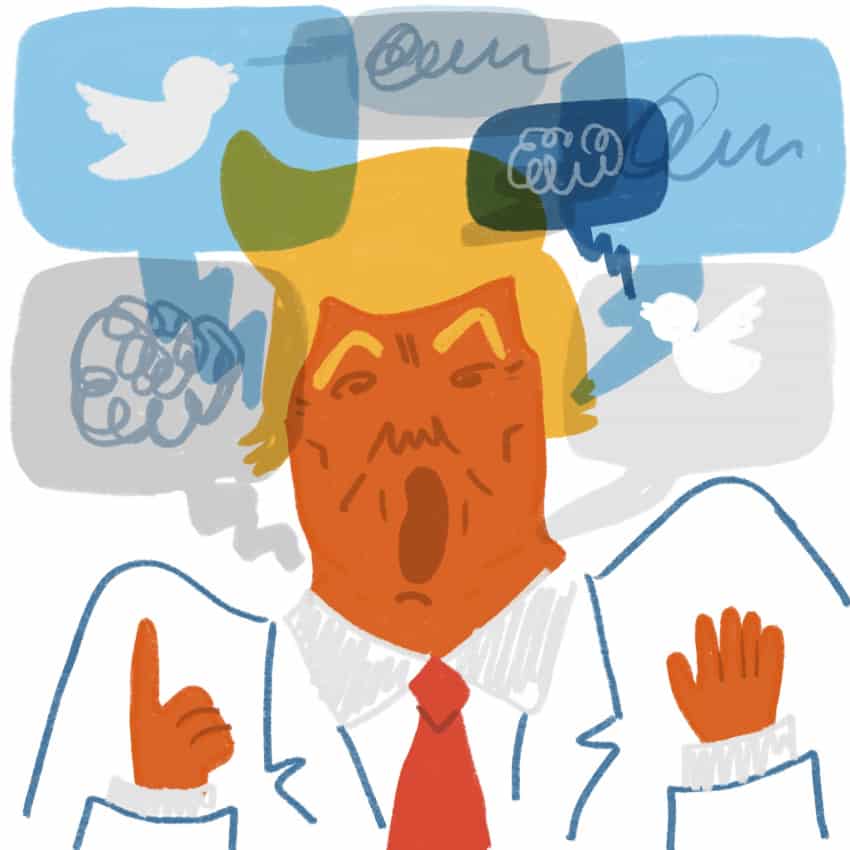
As the chapter for this United States administration closes, much is being said about the impact of the Trump presidency. But for me, a young Canadian, the lesson from these four years is this: words matter.
The Trump administration has been a defining part of my teenage years. Since high school, I’ve seen Donald Trump become the centrepiece of the media landscape and appear, almost ritually, every night on TV with the latest thing he’d said.
It’s a little weird that one person’s words can shape so many lives around the world. But then I remember that Trump isn’t just a person, he is the American president and all his words — from characters in a tweet to the speeches from the Rose Garden — come from one of the most powerful offices in the world.
For as long as time, intellectuals and all citizens alike have fought to understand — which matters more, words or actions? Often, it’s the action side that weighs out those arguing in favour of words. However, these past four years from the Republican primaries to the 2016 election to all the years of this administration have made it extremely clear that there is an importance to words.
From mocking prisoners of war to routinely degrading news outlets and journalists, especially women of colour and more — Trump has said a long list of awful, insensitive, irresponsible, intentionally hurtful things.
These words aren’t just momentary moments of disgrace — they work to erase people’s existence like when Trump said four congresswomen of colour should go back to their “crime infested and broken” countries. Side note, they are all U.S. citizens whose homes are across America.
Words can also be used to bolster and give space to the most extreme and radical elements of our society. See for example when President Trump praised supporters of QAnon, a pro-Trump conspiracy theory that the FBI considers a domestic terrorism threat, or when he claimed there were “fine people on both sides” about a 2017 white nationalist rally in Charlottesville that left a counter-protestor dead.
The words that are not said are also important.
So many, especially Republican leaders, have stood behind this administration’s words more often than not and have overwhelmingly proven that silence is dangerous.
Whether it’s by refusing to condemn the president’s use of tear gas to clear a crowd of peaceful Black Lives Matter protesters this past June for a photo op. Or not stepping in to ask why the president has been undermining the seriousness of COVID-19, even though the U.S. leads in cases and deaths worldwide, and mocking infectious disease specialist, Dr. Anthony Fauci, among others.
Silence allowed these words to make their way into the American national dialogue and discussions around the world — including here in Canada. There is a reason the word Trumpism is now being used to describe politics around the world.
These words have further transformed discourse into a deep, unending hole. They have normalized polarization and misinformation, and made partisanship, rather than bipartisanship, the norm.
There are many things that will come out of the analysis of the American election, but perhaps one of the biggest is that however small the margins may be in some swing states — decency, character and honesty matter.
Ultimately, words matter.
As time passes, and the memories of these past four years fade, one lesson that will stay permanently is this: the words that leave our mouth, regardless of the position we hold, matter.
—
Vaidehee Lanke | Opinions Editor
Graphic: Anh Phan | Design Editor
Leave a Reply